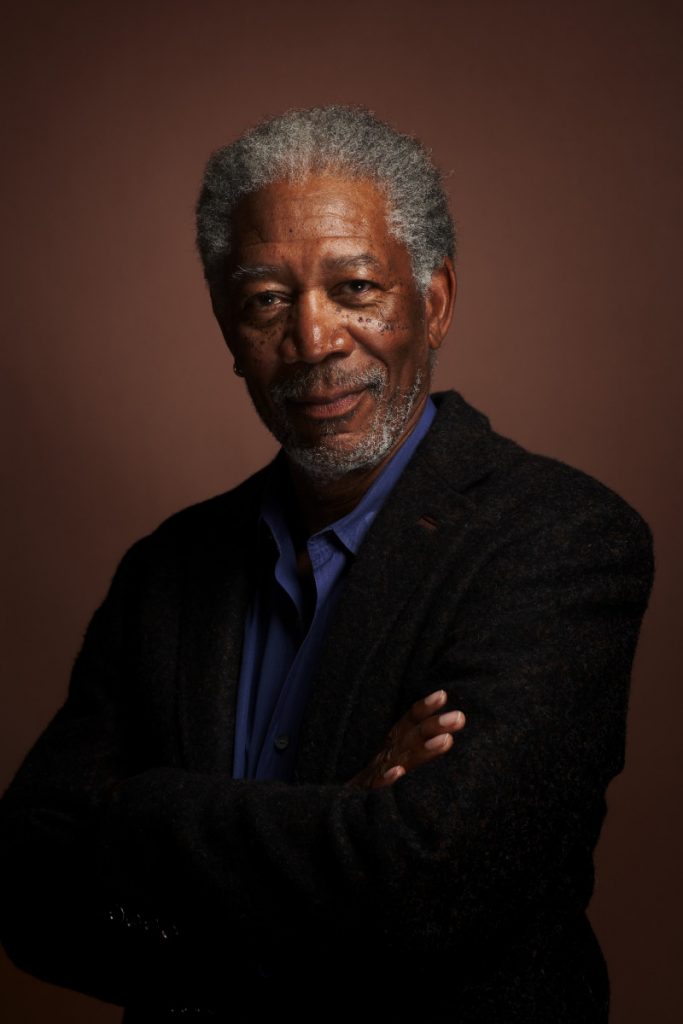
Liz DeLillo
Staff writer
From Delta roots to symphonic heights, the rich tradition of the blues is taking Chautauqua by storm today, with Morgan Freeman as its guide.
“We are thrilled to host Mr. Freeman and to learn why the Delta Blues and the Ground Zero Blues Club are his passion project,” said Senior Vice President and Chief Program Officer Deborah Sunya Moore. “While we won’t have catfish or hot tamales, there will be hot music and conversation to swim in.”
Chautauquans will get a special glimpse inside of the Freeman’s Symphonic Blues Experience at 10:45 a.m. today in the Amphitheater, with a panel discussion continuing
Week Nine’s Chautauqua Lecture Series theme, “Past Informs Present: How to Harness History.”
The panel includes Ground Zero Blues Club co-owners Freeman and Eric Meier, tour manager Tameal Edwards, conductor Martin Gellner, and blues musicians Lady Adrena, Anthony “Big A” Sherrod and Keith Johnson. They will discuss the collaboration, artistry and deep roots that ignited the Symphonic Blues Experience.
“This project is giving us the opportunity to have an ‘Only at Chautauqua’ experience as we prepare for the Symphonic Blues concert with Mr. Freeman and the Delta Blues musicians on the 10:45 a.m. lecture platform,” Moore said, then “experience the concert that evening as the musicians join the Chautauqua Symphony Orchestra.”
Freeman, Academy Award-winning actor, producer and narrator, needs little introduction. Beyond film, he is co-owner of Ground Zero Blues Club and the tour’s symphonic blues ambassador, narrator and executive producer. Freeman grew up in the Mississippi Delta, where he first encountered the blues.
Ground Zero Blues Club is an authentic juke joint in Clarksdale, Mississippi, founded in 2001 by Freeman, Howard Stovall and William Luckett. Joining the team in 2017, Meier is president and co-owner of the Ground Zero as well as the tour’s executive producer. Edwards is the Symphonic Blues Experience tour manager and booking manager at Ground Zero.
Gellner is a Vienna-based conductor, composer, arranger and producer as well as the tour’s music director. He has worked with acclaimed composers like James Horner, Randy Newman, James Newton Howard and Hans Zimmer. He also co-founded music production company Beat4Feet Productions as well as Big Island Orchestra, which specializes in film score and multimedia studio recordings.
Sherrod is a bluesman and multi-instrumentalist. The son of gospel singer E. J. Johnson and godson of blues’ Big Jack Johnson, he was mentored by Johnnie Billington and began playing bass at 5 years old.
Lady Adrena is a celebrated vocalist and songwriter known for her EP Recipe for the Blues and album Better Days. She won second place at the 2018 Vicksburg International Blues Challenge. Initially singing and writing Southern soul music, she embraced her love of the blues and became a traditional blues artist.
Johnson is a blues guitarist, harmonica player and songwriter. The “prince of the Delta blues,” Johnson is the great-nephew of the iconic Muddy Waters and grandson of gospel singer and radio host Texcellar Fields. In addition to his musical work, including debut album Come to Mississippi, Johnson authored two books: Freeman: Opening the Case and Come to Mississippi: The Birthplace of the Blues.
“The blues have influenced other artists from rock to jazz to hip hop — you look at the British invasion with the Eric Claptons of the world, The Rolling Stones, Led Zeppelin, you could even say The Beatles,” Johnson said. “The blues are the foundation of America’s music, so you have to highlight it.”
The Rolling Stones’ name was inspired by Muddy Waters’ 1950 song, “Rollin’ Stone.” The song was Muddy Waters’ interpretation of catfish blues — a popular blues standard in the 1930s — and is featured alongside Waters’ “Mannish Boy” on Jimi Hendrix’s posthumous compilation album Blues.
“I have a rich background by being the great-nephew of McKinley Morganfield, known as Muddy Waters,” Johnson said. “Now, on this tour, I’m focusing on slide guitar more, which is what Muddy Waters was famous for. I’m focusing on the harmonica. (It’s) not a different style of music but something that I’m able to tap into.”
Slide guitar is a blues technique where musicians hold a hard object or “slide” against guitar strings to evoke more vocal sound textures. A pioneer of Chicago blues, Muddy Waters famously used the technique on electric guitar.
“We’re taking the harmonica. We’re taking slide guitar. We’re taking old folk songs — songs sung by Son House — and popular songs by the staple singers — songs by Sam Cooke — and we’re rearranging those songs and getting them into an orchestra style,” Johnson said. “And it’s telling a different story.”
While genre-blending itself is not musically novel, an orchestral arrangement for traditional Delta blues is; orchestral music is far more structured than the improvisational flair of the blues.
“Music is always intertwined with each other, … but we’ve just never seen a full orchestra play with traditional blues musicians or a traditional blues style,” Johnson said. “And we all know that blues music tells a story, so most importantly, listening to that story and having Morgan narrate each story — it blossoms (into) a new song.”
Beyond stories told by particular songs, the blues tradition has its own storied history.
“We’re looking at a rich heritage with African American culture here in the Mississippi Delta, in which the blues and gospel was born,” Johnson said. “… The blues was born through the sound of the drums, dancing, the story (and) the spirit of it — and the spirit of this music traveled from Africa to what we now know as the U.S.A.”
The blues underlies much of American music — it is a musical foundation for country, rock ’n’ roll, jazz and more. Simultaneously, it encompasses the history of the trans-Atlantic slave trade and centuries of oppression.
“Those people, they were stripped of everything, so we brought those stories with us. We brought the sound, … the cries through slavery, through sharecropping, through Jim Crow, up until today,” Johnson said. “ Those stories still resonate, and you can feel those stories and the people. They helped build this country, so that’s why it’s so important.”
For Johnson, Symphonic Blues is transformative not only for those experiencing it but also for the blues at large.
“To me, it’s evolutionized what the blues is (and) telling that story on a different level,” Johnson said. “A lot of people are accustomed to the traditional sound — but having the orchestra blend with it, we have new eyes on the blues.”




